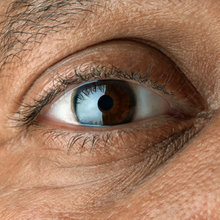Pavilion Publishing and Media Ltd
Blue Sky Offices Shoreham, 25 Cecil Pashley Way, Shoreham-by-Sea, West Sussex, BN43 5FF, UNITED KINGDOM
 NICE has made a final recommendation to accept the use of aflibercept (EYLEA) as a cost-effective first-line treatment option for adults with visual impairment due to macular oedema secondary to branch retinal vein occlusion (BRVO), pharma Bayer has announced.
NICE has made a final recommendation to accept the use of aflibercept (EYLEA) as a cost-effective first-line treatment option for adults with visual impairment due to macular oedema secondary to branch retinal vein occlusion (BRVO), pharma Bayer has announced.
The decision means that more than 13,000 patients will now have access to the cost-effective treatment option, which has been proven to achieve superior improvements in vision compared to existing first-line treatment (laser). Aflibercept will now be the only medicinal product currently approved by NICE as a first-line treatment option for visual impairment due to macular oedema secondary to BRVO.
Following the publication of the full guidance, the NHS in England and Wales will have 90 days to implement the guidance to ensure that all eligible patients have access to aflibercept as soon as possible.
Professor Sobha Sivaprasad, Consultant Ophthalmologist, Moorfields Eye Hospital, London, commented: “I am pleased that NICE has finalised this guidance for aflibercept as I am now able to offer an anti-VEGF as a first-line treatment option to patients with BRVO. This will allow patients to achieve the best possible clinical outcomes upon diagnosis and the opportunity to achieve the positive visual outcomes that we see in real-life clinical practice across other retinal conditions.”
BRVO is caused by a blood clot in one of the branches of the main vein in the retina, the light sensitive layer at the back of the eye. Blockages in the retinal veins increase the pressure in the small blood vessels at the back of the eye, which can lead to blood and fluid leaking beneath the macula (macular oedema). If not treated effectively, macular oedema secondary to BRVO can significantly impact a person’s vision. This loss in vision can severely affect independence, confidence and the ability to undertake daily activities, meaning patients become increasingly dependent on family and carers.
Cathy Yelf, Chief Executive of the Macular Society, said: “We are delighted with this final decision from NICE as it means that patients with BRVO will have the best chance possible to preserve their sight and maintain their independence and quality of life. Sight loss can have a devastating impact on an individual and their family so we are pleased the NICE has recognised that patients should have access to an anti-VEGF treatment as soon as possible and in line with guidelines from the Royal College.”
Dr Alexander Moscho, CEO, Bayer UK/Ireland, commented: “We are pleased that NICE has finalised its positive decision for EYLEA for the treatment of visual impairment due to macular oedema secondary to BRVO. This treatment continues to achieve positive results in real-life clinical practice, similar to that demonstrated in clinical trials, and we hope that this will continue for patients with macular oedema secondary to BRVO.”
Aflibercept is an anti-VEGF targeted treatment. It is licensed in the UK for the treatment of wet age-related macular degeneration, visual impairment due to macular oedema secondary to central retinal vein occlusion and BRVO, visual impairment due to diabetic macular oedema and myopic choroidal neovascularisation.


